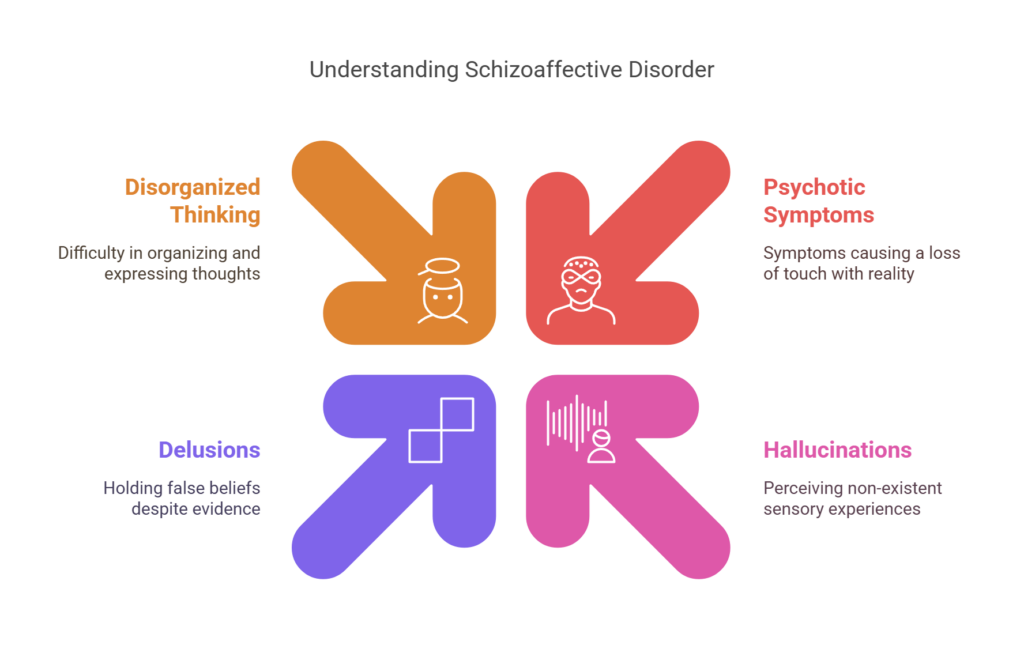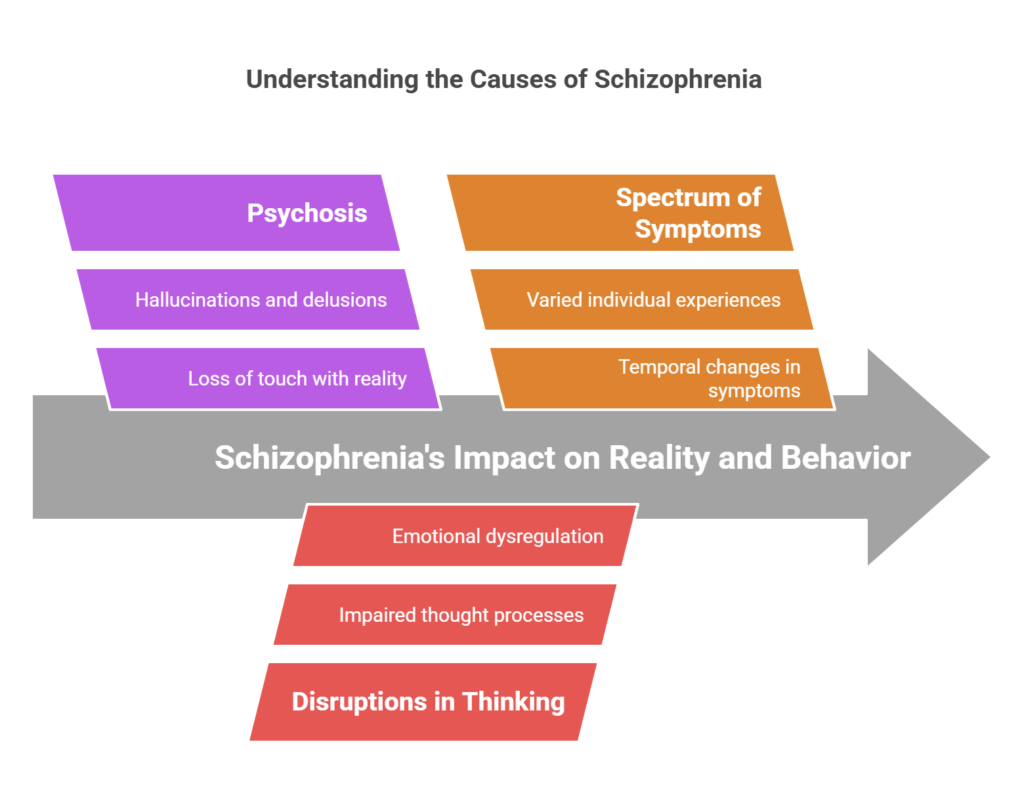Struggling with schizoaffective vs schizophrenia can feel isolating. The confusion, the stigma, and the daily challenges can make life overwhelming. If you or a loved one is battling these conditions, you may feel lost and unsure of where to turn for help.
At Relevance Recovery, we understand. As a leading mental health and addiction treatment center, we provide comprehensive care to help individuals struggling with schizoaffective disorder, schizophrenia, and related conditions. Our goal is simple: to help you regain control, find stability, and live a fulfilling life.
Many people with schizoaffective vs schizophrenia also face co-occurring issues like anxiety, depression, substance abuse, or addiction. These conditions can make symptoms worse, leading to further instability. That’s why professional treatment is essential because managing these disorders requires a holistic, structured, and personalized approach.
If you or someone you love is struggling, don’t wait. Help is available, and recovery is possible.
Let’s explore the key differences between these disorders and how Relevance Recovery can provide the care you need.
What is Schizoaffective Disorder?
Schizoaffective disorder is a complex mental health condition that combines symptoms of schizophrenia with mood disorders such as depression or bipolar disorder. This means that in addition to experiencing hallucinations or delusions, a person may also have severe mood swings.

People with schizoaffective disorder often experience severe emotional distress, and without the right treatment, their symptoms can worsen over time.
At Relevance Recovery, we offer a structured treatment approach that includes:
If left untreated, schizoaffective disorder can lead to addiction, self-harm, or severe depression. But with the right treatment, individuals can regain control and improve their quality of life.
Schizophrenia is a serious mental disorder that affects how a person thinks, feels, and behaves. Unlike schizoaffective disorder, schizophrenia does not involve extreme mood swings, but it does cause severe distortions in reality.

Schizophrenia can be debilitating, making it difficult for individuals to function in everyday life. Many people with schizophrenia also experience substance abuse issues, using drugs or alcohol to cope with their symptoms.
Both schizoaffective vs schizophrenia are caused by a mix of genetic, environmental, and neurological factors. However, certain triggers can make symptoms worse or bring them on earlier.
At Relevance Recovery, we treat both the disorder and its triggers. Many individuals struggling with schizoaffective vs schizophrenia also battle addiction or co-occurring mental health disorders. We provide dual-diagnosis treatment, ensuring that all aspects of a person’s well-being are addressed.
Since these conditions are often confused, it’s essential to know their differences.
Recognizing these differences is essential for choosing the right treatment.
Because symptoms overlap, professional diagnosis is crucial. At Relevance Recovery, we conduct thorough mental health assessments to determine the right diagnosis and treatment plan.
A correct diagnosis ensures the most effective treatment for each individual.
At Relevance Recovery, we offer personalized treatment for both conditions.
Both disorders require long-term care, but with the right support system, recovery is achievable.
If you or a loved one is struggling with schizoaffective vs schizophrenia, know this: you are not alone, and help is available. These conditions can feel overwhelming, but with the right support, stability and healing are possible.
At Relevance Recovery, we believe that mental health recovery is not just about managing symptoms, it’s about rebuilding lives. Our team provides expert care, personalized treatment, and unwavering support to help you take back control. Whether you’re dealing with co-occurring addiction, severe mood swings, or psychotic symptoms, we offer real solutions that work.
Your future does not have to be defined by this diagnosis. With the right treatment, you can regain clarity, improve relationships, and find purpose again. Let us guide you toward lasting recovery.
Call Relevance Recovery today, because your healing starts now.
FAQs
The main difference is that schizoaffective disorder includes mood symptoms (depression or mania), while schizophrenia is primarily a psychotic disorder with hallucinations, delusions, and cognitive issues. Schizoaffective disorder affects mood and thought processes, whereas schizophrenia mainly impacts perception and cognitive functioning.
A person with schizoaffective disorder may experience intense mood swings, hallucinations, delusions, and disorganized thinking. They may struggle with depression, mania, or both, making daily life unpredictable. With proper treatment, individuals can manage symptoms and lead a stable, fulfilling life.
Yes, with the right treatment, schizoaffective disorder can be managed effectively. A combination of medication, therapy, and lifestyle changes can reduce symptoms, improve stability, and help individuals lead productive lives. Early intervention and continuous care are key to long-term improvement.
Absolutely. With proper treatment, individuals with schizoaffective disorder can live meaningful and independent lives. Medication, therapy, and support systems help manage symptoms, improve relationships, and enhance daily functioning. Early intervention and consistent care make long-term stability possible.
Bipolar disorder does not turn into schizophrenia, but they share overlapping symptoms. Some individuals misdiagnosed with bipolar disorder may later be diagnosed with schizoaffective disorder or schizophrenia. Early diagnosis and treatment are crucial for managing symptoms effectively.
Triggers include genetics, trauma, substance abuse, extreme stress, and brain chemistry imbalances. Environmental factors, like childhood trauma or drug use, can increase risk. While the exact cause is unknown, a combination of biological and environmental factors contributes to its development.